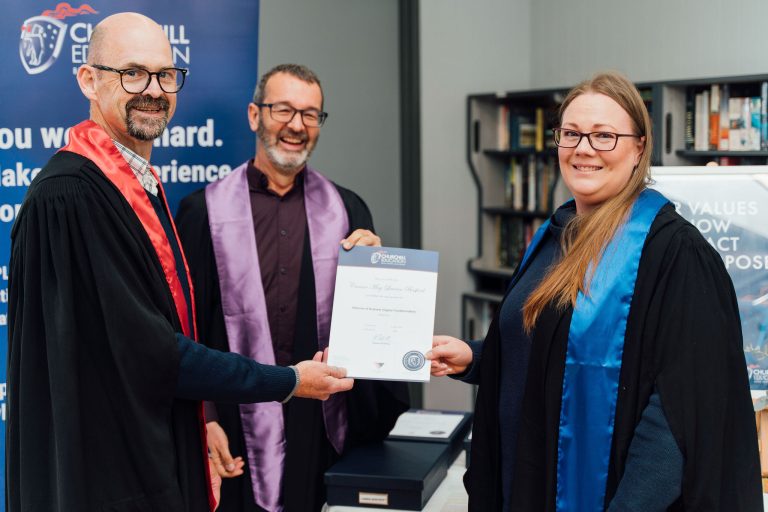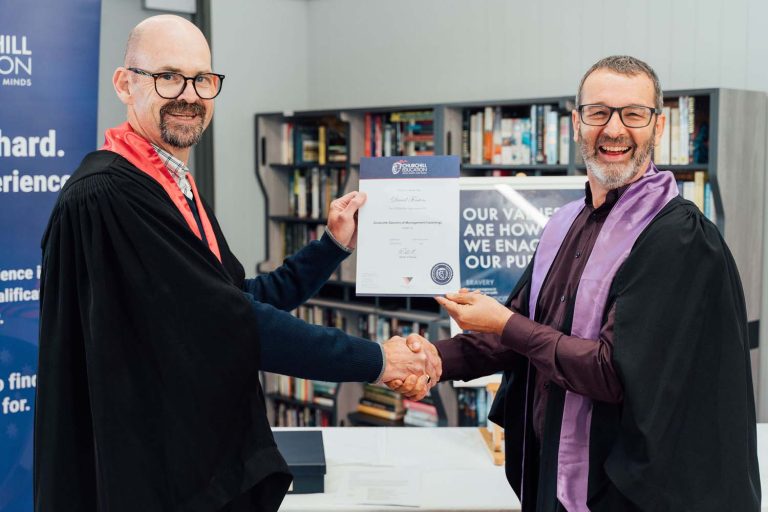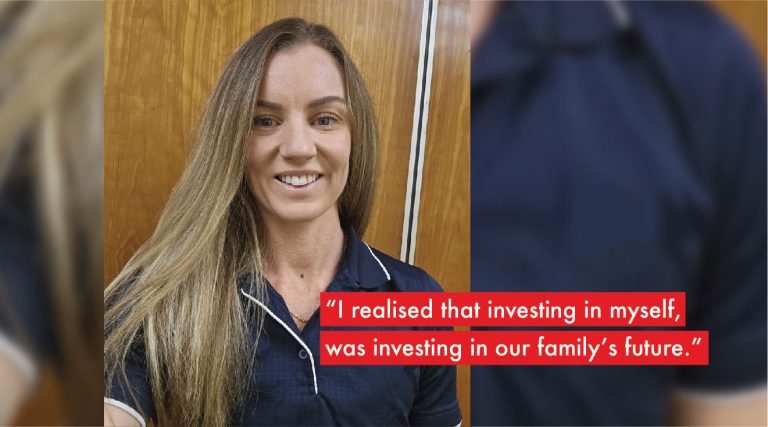Every week at Churchill Education, we speak with personnel who have plenty of experience, training, abilities and knowledge, accumulated over time in their Defence positions. They may have worked their way up through the ranks and had opportunities to learn a lot of different skills, and be proud of the success they’ve achieved. But, a common concern that these people voice is that, when they leave Defence, none of this experience will mean anything to civilian employers. Defence training and qualifications are all very well in Defence, but there is no guarantee they will be understood or appreciated by employers outside the Forces.
 Christian Blake was one of those personnel, who decided that he needed a lifestyle change after eleven years in the Navy. ‘I was sick of going to sea, sick of going away and missing out on things. It got to the point when I was nearing thirty, and I’d been thinking about it for a while. I needed to either decide to stay and be in it for the long haul, or leave and start a new career.’
Christian Blake was one of those personnel, who decided that he needed a lifestyle change after eleven years in the Navy. ‘I was sick of going to sea, sick of going away and missing out on things. It got to the point when I was nearing thirty, and I’d been thinking about it for a while. I needed to either decide to stay and be in it for the long haul, or leave and start a new career.’
On the recommendation of a colleague, Christian contacted Churchill Education while he was still in the Navy, to see if we could help him translate his Defence experience into Nationally Recognised Qualifications: respected, valued and well-regarded credentials in the civilian world.
‘It was pretty easy overall,’ Christian says. Through the process of RPL (Recognition of Prior Learning) Christian worked with our specialised RPL assessors to convert his Defence experience into a BSB51107 Diploma of Management, a BSB51312 Diploma of Work Health and Safety (now superseded by BSB51315 Diploma of Work Health and Safety), a CPP51611 Diploma of Security and Risk Management a BSB41412 Certificate IV in Work Health and Safety (now superseded by BSB41415 Certificate IV in Work Health and Safety) and a TAE40110 Certificate IV in Training and Assessment (now superseded by TAE40116 Certificate IV in Training and Assessment). So, by the time Christian was out of the Navy, he had an impressive list of qualifications on his resume to give him an edge on other applicants who were going for the same jobs.
‘It was actually a positive experience,’ Christian says. ‘I’d definitely recommend it – for anyone at the Junior Non-Commissioned Officer level and up, it’s worth looking at qualifications, particularly in training. Plenty of companies require staff for training.’
Find out what you’re eligible for
With all those qualifications on board, Christian secured a position as a Learning and Development Advisor for an IT company, not long after leaving the Navy, a position he still holds today. ‘The project I’m working in involves the Opal Card used on public transport throughout all of New South Wales. I’m really enjoying it.’
Because he was looking at training positions, the Training and Assessment qualification was definitely valuable, Christian says. ‘It was the qualification they were looking for. And I’d say the management one helped, too. What that piece of paper says is that I can manage my time, I can manage tasks and I can manage people.’
At Churchill, we have staff who have made the change from Defence Forces themselves. They speak the language, understand the culture, and respect the training that personnel receive. They also work hard to make the process of gaining qualifications worthwhile, easy and efficient, as Christian testified to. So, if you’re thinking of making the transition out of Defence, get in touch with Churchill to discuss how we can help make your experience count on civvy street.








